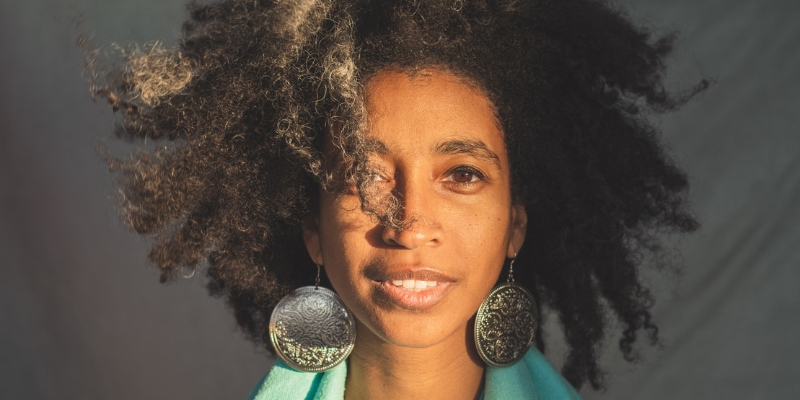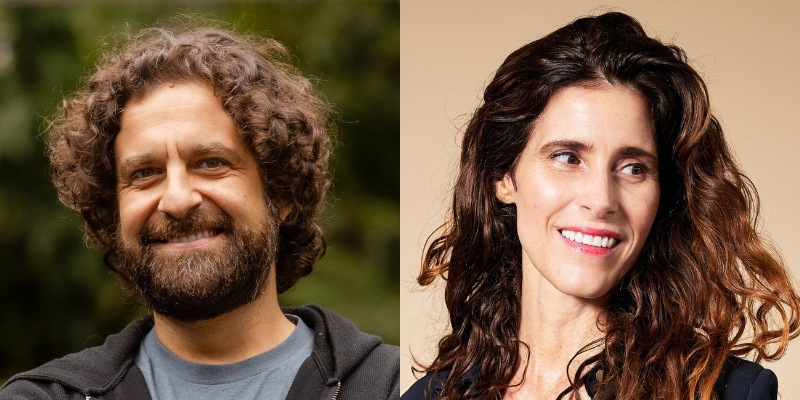What does it mean to think like a geologist? Geology professor Marcia Bjornerud gives us a window into a field that studies the literal history of the Earth. She will be joining us on September 17 to discuss “timefulness”—her newly coined concept that encourages a drastic (but, she says, necessary) shift in our 21st century perspective. In the meantime, Bjornerud spoke with Town Hall’s Alexander Eby about the geologist’s mindset and the explanatory power that comes from reading the rocks.
AE: What gets a person interested in geology?
MB: Many of our students—and I think this is true across the country, not just at our university—discover geology almost by accident. Many of them first sign up simply to fulfill a lab requirement, thinking that geology doesn’t sound as scary as physics or biology.
AE: And then they realize they love it?
MB: Exactly. The field has a powerful capacity to convert people who don’t think of themselves as “the science type.” I think that’s because, for me, geology has this huge explanatory power and that’s really addictive. I sometimes say geology is the etymology of the world. Once you get in the habit of thinking that way, you want to understand how things came to be. For a lot of people that’s the attraction.
AE: And unlocking that explanatory power, was that the goal of some of your earlier books? To make geology more accessible?
MB: Definitely. This is the world we live in, and it’s really kind of shocking how little the average earthling knows about the planet. I think geology has a PR problem, if people are aware of it at all. It’s linked in their minds, understandably, with the oil industry, the mineral industry, or with this perception of dusty musty museum collections. There aren’t too many opportunities for people to get the big picture. That’s what I’m trying to achieve. I want to give people a window into this longer view, and help them engage with the logic of geology. Over the course of my teaching career I’ve learned that people are hungry for that big picture. They hear about dinosaurs once in a while, but they don’t really have a chance to see the grand overview.
AE: So is that the goal with introducing this concept of “timefulness?”
MB: Yes. It’s not an attempt to tell the whole story of the earth. It’s more about demystifying how geologists think about time. It’s about communicating how we’ve gone about constructing the geologic timescale and why it’s relevant. There’s a misconception that geology is all about the past. While that’s partly true, we also study the past because it’s the only thing that we have that can allow us to make intelligent inferences about what might happen in the future. So geology is increasingly as much forward-looking as backward-looking.
I think it’s an underappreciated intellectual accomplishment that humans know as much about the deep past of the planet as we do. And it’s not just one person who won a Nobel Prize for figuring it out, it’s two centuries worth of people from all over the world. Many different cultures, personalities, and kinds of scientists have contributed to this amazing history of the world.
AE: Accomplishments formed by standing on the shoulders of giants?
MB: Right. The logic of it is comprehensive. You can spend a lifetime learning all the details, but I think at least appreciating how we, collectively, have gone about understanding the past is a step in the right direction.
AE: How do you help a student learn to think this way?
MB: Well, it certainly helps to go out in the field and learn from first principles. One of my favorite metaphors for the way geologists see the world is that of a palimpsest manuscript. In the past, before paper was widely produced, documents were written on parchment. But parchment was expensive, and often used and reused. Old ink would be scraped off, leaving vestiges of the earlier writings underneath. That’s a good way of thinking about landscapes. If you can get out in the field and start seeing these ‘re-inkings’ then it becomes a kind of habit of mind. We can abandon our peculiar 21st century mindset that the past is burned up behind us and instead recognize that the past is in fact everywhere. Our own bodies and cells are narratives of evolution; everything around us has a backstory.
I had a math professor who would often say there are many sizes and shapes of infinity. I think that’s a useful way of thinking about the geologic past too. There are things that happened a long time ago, a long-long time ago, a long-long-long time ago. It’s central to the “timefulness” idea that we get some depth of field and get a sense of the distances between some of the big events in Earth’s history.
AE: Now, also contained in the title of your newest book is the notion of saving the world. How does this expanded depth of field and knowledge of the Earth’s history relate to saving the world?
MB: It speaks to a perceptual shift that we need to make. We need to think of ourselves as earthlings and not as somehow having outgrown the natural world. We’re deeply embedded in the natural world. Things that have happened in the past are going to continue to unfurl, like it or not, into the future. We need to think of ourselves as part of that continuum and set things in motion now that may not bear fruit until we are gone. We have to change our view of who we are in time—and our sense of obligation to future generations.
There are models for doing that here and there, so it’s not an entirely new idea. Kurt Vonnegut famously suggested there should be a new cabinet post, Secretary of the Future, who would provide counsel on behalf of the unborn. I’ve done some work with the Great Lakes Indian Fish & Wildlife Commission, which is a consortium of tribes in the Upper Great Lakes region that works to protect treaty rights around Lake Superior especially. The treaties that they protect were signed back in the 1830’s, and they’re trying to make plans for the next century or so. So there are models for how to do this, but we need a collective shift in consciousness and self identity.
AE: What can we do on an individual level to model our lives for this way of thinking?
MB: Get curious about the natural world. Get children in particular engaged—tap into their innate scientific curiosity, early and often. And just try to instill in people a sense of their connectivity to the natural world—to the geologic past and the geologic future.
AE: What do you think of the old adage, to say something is “set in stone” or “written in stone?”
MB: That means it’s temporary. Mountains come and go, and erosion prevails.
Don’t miss Marcia Bjornerud’s talk on 9/17 at The Summit on Pike.


